《2021年联合国世界水发展报告》发布:探究水的价值,保护“蓝色金子”
(English version below)
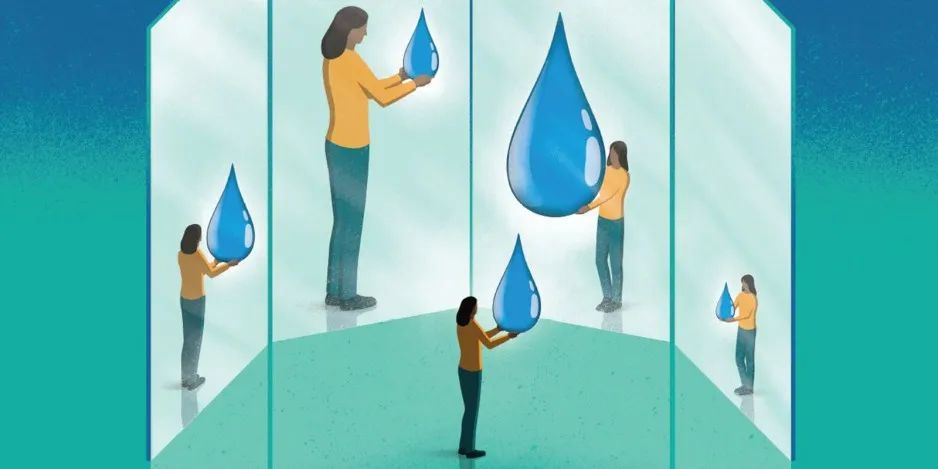
由联合国教科文组织代表联合国水机制发布的《 2021年联合国世界水发展报告》表明,对水的价值缺乏认知是导致其被浪费和滥用的主要原因。尽管对这一生命之源的价值开展绝对客观且毫无争议的评估具有难度,但我们仍有必要深入探究水的各个维度,以便阐释其“价值”的不同方面。在该资源日益稀缺、人口增长和气候变化压力日见增大的背景之下,这一行动尤显重要。
下载报告(英文版):
水是我们最宝贵的资源,是超过20亿人口面临获取困境的‘蓝色金子'。它不仅是生存的必须品,还是处于人类社会核心的卫生、社会和文化问题。—— 奥德蕾·阿祖莱(Audrey Azoulay,联合国教科文组织总干事)
今年的报告集中讨论水的价值这一问题。报告表明水资源经常被轻视或浪费,这是因为我们倾向于只关注它的直接经济成本,而忽视其无法用价格来衡量的巨大价值。
新冠疫情的毁灭性影响不仅提醒我们获取水、环境卫生和个人卫生服务的重要性,还凸显了有太多人并无法获取上述服务的现实。许多问题都源于我们没有足够重视水的价值;通常水甚至没有得到起码的珍惜。—— 吉尔伯特·洪博(Gilbert F. Houngbo,联合国水机制主席兼国际农业发展基金会总裁)
水的价值的确是无法估量、没有限度的,因为没有它就没有生命,且没有替代品。最好的例证或许就是人们对在火星上可以找到水的痕迹的想法抱有极大热情,或者说一旦提到外星世界,我们就将水当作生命的同义词。
《报告》强调必须丰富水的“价值”这一概念,并且不应混淆“价格”、“成本”和“价值”。虽然价格和成本有被量化的可能,但“价值”概念包含了社会和文化层面,要广泛得多。
水不是一种可被视为消费品并在证券市场进行交易的原材料。我们所面对挑战是确定一种资源的价值,而该资源的重要性会根据不同的经济活动领域和时期而变化,并且还需考虑到其在社会、环境和文化层面的影响。
用于确定水的价值的工具和方法不完善且使用不当
然而,我们现在可用的工具倾向于将水的价值仅局限于经济层面。
我们当然不否认水具有经济价值,它是一种拥有众多用途的资源:粮食种植、水力发电、工业生产、等等。
在农业和工业用水方面,对水进行货币化估价的优点是便于使用、易于理解,但它的缺点则是低估、甚至忽略了其难以转换成货币数额的其他层面。譬如,该如何量化孩子们每年因水相关疾病而损失的4.43亿个上学日呢?
另外,部分社会拒绝从经济角度解读大自然及其利益,他们强调“地球母亲”的权利,使得单纯经济解读严重不足以体现水的价值。例如:在印度,恒河受到印度教徒的崇敬,他们认为印度河是与人类享有同等权利的生命实体。同样,2017年在新西兰通过的《 Te Awa Tupua》法案承认旺格努伊河是“从山脉到海洋的不可分割的、有生命的实体”,并支持当地毛利人对该河的保护。
人类的命运与水的命运密不可分。正如旺格努伊河部落的俗语所说:我便是河,河便是我(ko au te awa,ko te awa ko au)。—— 奥德蕾·阿祖莱(Audrey Azoulay,联合国教科文组织总干事)
在这些观点以及将水视为具有经济价值的投资者视角之间,我们似乎很难建立一个统一的体系来衡量水的价值的各个方面。但是,我们可以制定出一种能够将水的不同层面一起考虑的综合方法,以便做出恰当的政策抉择。该方法的关键因素之一是确保所有利益相关方均能参与评估和决策,无论其背景或性别。如果我们想要丰富我们对待水的方式,而不仅仅是将其局限于货币价值之上,那么我们就必须吸纳各方观点,尤其是直接相关方意见。克服观念分歧并达成必要的妥协是水管理中的重大挑战之一。
现在是时候让利益相关方明确、表达和分享他们对水的价值的看法了。—— 吉尔伯特·洪博(Gilbert F. Houngbo,联合国水机制主席兼国际农业发展基金会总裁)
这意味着要建立若干让利益相关方表达意见并得到倾听的机制。
例如,在研究大型基础设施项目时,必须考虑到所有这些不同层面,以免低估其社会、文化和环境影响。因此,我们必须将水的多方面“价值”纳入成本-效益考量。
再如,确保140个低收入和中等收入国家人口普遍获取饮用水和卫生设施,每年需要花费约1,140亿美元,但我们知道由此产生的多重社会和经济效益很难评估。
这些问题正是《 2021年联合国世界水发展报告》的核心。
《世界水发展报告》是联合国水机制关于水和卫生设施的旗舰报告,每年探讨不同的主题。报告由教科文组织代表联合国水机制发布,其撰写工作由教科文组织世界水评估计划组(WWAP)协调。《报告》根据联合国水机制成员和合作伙伴的既有研究,洞悉淡水和卫生设施的现状及其使用和管理的主要趋势。
报告于“世界水日”发布,不仅为决策者提供制定和实施可持续水资源政策的知识和工具,还提供最佳实践和深入分析,以在水资源及更广泛领域激发灵感、鼓励行动。
Launch of UN World Water Development Report 2021: determining the true value of the “blue gold” we need to protect
The United Nations World Water Development Report (WWDR) 2021, published by UNESCO on behalf of UN-Water, shows that the inability to recognize the value of water is the main cause of water waste and misuse. Despite the difficulty of attributing an objective and indisputable value to a resource which is fundamental to life, it seems necessary to examine water’s various dimensions in order to understand the various aspects of its “value”. This is especially true in times of growing scarcity and against the backdrop of population growth and climate change.
Download the report:
Water is our most precious resource, a ‘blue gold’ to which more than 2 billion people do not have direct access. It is not only essential for survival, but also plays a sanitary, social and cultural role at the heart of human societies.—— Audrey Azoulay, UNESCO Director-General
This year’s WWDR addresses the question of the value of water. It shows that waste and careless use stems from the fact we all too often think of water exclusively in terms of its cost price, without realizing its tremendous value, which is impossible to price.
The devastating effects of the COVID-19 pandemic remind us of the importance of having access to water, sanitation and hygiene facilities, and highlight that far too many people are still without them. Many of our problems arise because we do not value water highly enough; all too often water is not valued at all.—— Gilbert Houngbo, Chair of UN-Water, President of the International Fund for Agricultural Development
The value of water is certainly incalculable and limitless, since life cannot exist without it and it has no replacement. This is perhaps best illustrated by the widespread enthusiasm for the idea that traces of water can be found on Mars, or the fact that we think of water and life as interchangeable when studying other planets.
The report emphasizes the great need to broaden the notion of the “value” of water stressing that we cannot confuse the concepts of “price”, “cost” and “value”.
Although price and cost are potentially quantifiable, the concept of “value” is much wider and includes social and cultural dimensions.
Indeed, water is not like other raw materials which can be treated as commodities and openly traded through stock markets. The challenge is to determine a value for a resource whose importance varies in different areas of economic activity, at different times, without forgetting to take into account its social, environmental and cultural dimensions.
Tools and methodologies for valuing water are both imperfect and misapplied
The tools we have today tend to reduce the value of water to its economic aspect.
The economic value of water cannot be denied considering its myriad uses in food, electricity and industrial production, to name just a few.
While monetary valuation has the advantage of convenience and easy legibility in agriculture and industry, it presents the disadvantage of underestimating, even excluding, other aspects which are more difficult to monetize. How do we quantify the meaning of the 443 million schooldays missed annually due to water-related diseases?
Furthermore, some societies reject the idea of viewing nature and its benefits from an economic perspective, putting the rights of “Mother Earth” to the fore, thus rendering such economic readings of the value of water woefully inadequate.
In India, for example, the Ganges is revered by Hindus as a living entity with the same rights as human beings. Similarly, in New Zealand, the Te Awa Tupua Act of 2017 recognizes the Whanganui River as “an indivisible and living whole from the mountains to the sea” and guarantees the river's protection by the local Maori population.
The fate of humans and water is inextricably linked. In the words of the Whanganui River Tribe's proverb, Ko au te awa, ko te awa ko au, I am the river, the river is me.—— Audrey Azoulay, UNESCO Director-General
Faced with these views and those of investors, who consider that resources such as water can have an economic value put on them, it becomes difficult to develop a standard system to measure the value of water in all its aspects. Nevertheless, it is possible to develop an integrated approach that allows the different dimensions of water to be considered together, so as to identify appropriate policy choices. A key element of such an approach is to ensure that all stakeholders, regardless of background or gender, are involved in evaluations and decision-making. If we want to enrich our approach to water and stop reducing the resource to its mere monetary value, we must be enriched by the views held by all, especially the people directly concerned. Overcoming differences of opinion and reaching the necessary compromises is one of the great challenges of water management.
The time has come for stakeholders to identify, articulate and share perspectives of the values of water.—— Gilbert F. Houngbo, Chair of UN-Water and President of IFAD
This implies developing mechanisms that allow stakeholders not only to express themselves but also to be heard.
When major infrastructure projects are studied, for example, it is essential to consider all these different dimensions, to ensure that their social, cultural and environmental consequences are not underestimated. A cost-benefit approach therefore requires considering the different “values” of water.
Similarly, we know that providing universal access to safe drinking water and sanitation in 140 low- and middle-income countries would cost $114 billion per year, whereas the multiple social and economic benefits of safe water are difficult to evaluate.
These issues are at the heart of this year's edition of the United Nations World Water Development Report (WWDR), UN-Water’s flagship publication on water and sanitation issues, which focuses on a different theme every year.
The report is published by UNESCO on behalf of UN-Water and its production is coordinate by the UNESCO World Water Assessment Programme.
The report gives insight into the main trends concerning the state, use and management of freshwater and sanitation, based on work by members and partners of UN-Water.
Launched in conjunction with World Water Day, the report provides decision-makers with knowledge and tools to formulate and implement sustainable water policies. It also offers best practice examples and in-depth analyses to stimulate ideas and actions for better stewardship in the water sector and beyond.



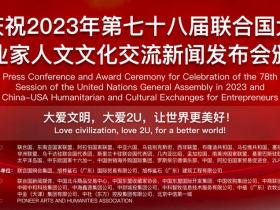

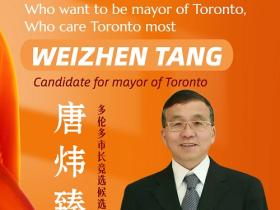
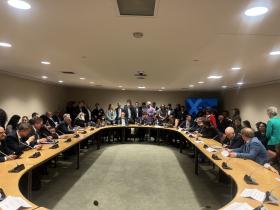
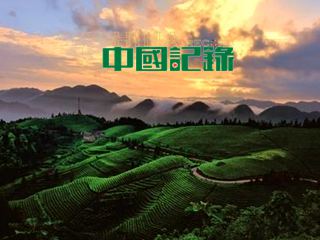

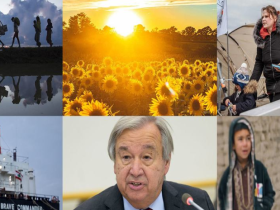
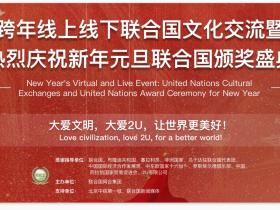
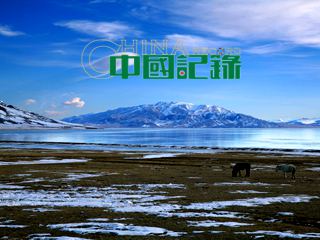
评论